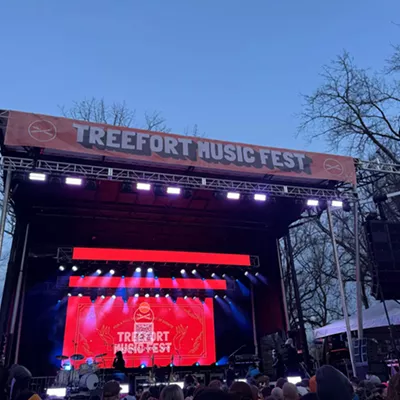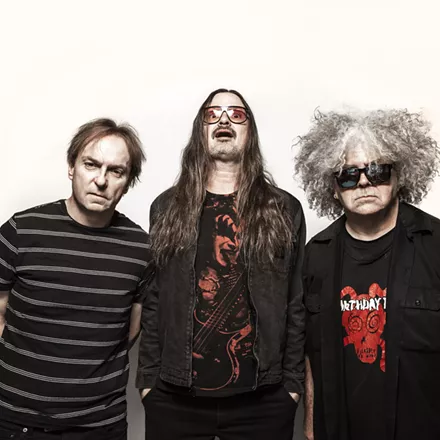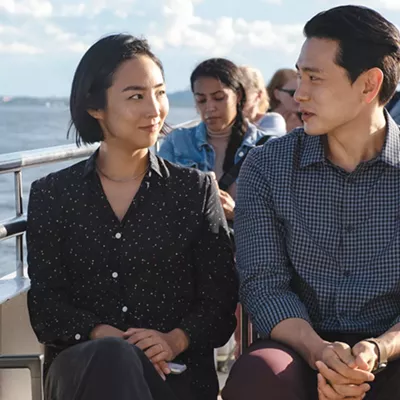Pop music can be a lot of things — giddy, angry, lovelorn, cathartic, nonsensical. It can also be therapeutic, and not just in its lyrical themes.
In her interactive e-book Music for Women (Survivors of Violence), music therapist Sandi Curtis details how she has used mainstream music — pop, sure, but also country, rock and R&B — in working with women who have experienced domestic violence.
Those themes are even more trenchant right now: According to the World Health Organization, domestic violence cases have spiked around the world during COVID-19 lockdowns, a trend provoked not only by people being in isolation with abusive partners but by the general economic and political anxiety surrounding the coronavirus.
"The isolation exacerbates it for [victims of abuse] because they can't get out and get help as readily," Curtis tells the Inlander. "If you don't have a feminist understanding of male violence, you may think it's just one bad apple, one guy who went wrong. But it's actually not that at all. ... It's something in our sociopolitical environment that makes it possible for these men — not all men, of course — but for these particular men to be abusive."
Curtis says an international crisis like the ongoing pandemic "pulls back the curtain" on a lot of issues, including domestic violence. But even for people who aren't in abusive situations, the act of seeking solace in music can be a huge relief.
"It doesn't matter if you're a male or female in a violent situation, or if you're by yourself. You're going to feel that pressure," Curtis says. "Music is a great way for everybody to deal a little better with it. There's a lot of talk in the news about what to eat and how to exercise [in isolation], but let's not overlook what music can do."
Curtis began studying classical music at McGill University, but she quickly turned her attention from performing to using music as a form of therapy.
"I really wanted to do something that had a more powerful impact in people's lives," Curtis says from her home in Montreal. "I hadn't heard of music therapy, but when I started exploring, I thought, 'Well, this is it.'"
She says she was particularly focused on female patients who experienced violence from male partners, and she started exploring the therapeutic possibilities of mainstream pop music while working in a battered women's shelter in Georgia.
"One of the big things abusers do is isolate [women] and convince them the abuse is their fault," Curtis says. "When they began to hear singer-songwriters like Tracy Chapman or Trisha Yearwood singing about their own experiences, then they were able to break out and think, 'Gosh, if that happened to them, and they certainly don't deserve it, maybe I don't, either.'"
Trauma and recovery are personal things — that's no surprise — but so, too, is musical taste. Because of that, Curtis says she lets her clients guide the music selection, picking artists and genres they're already comfortable with. They study the song, they listen to it and analyze it, and those studies usually evolve into sessions where clients write their own songs about their personal experiences.
"The music is not just all about violence against women," Curtis says. "There's also music that tells love stories, and what are relationships between men and women? ... Do we stand by our man or do we expect something a little bit better? We also look at songs that talk about empowerment and self-esteem, and even things like body issues."
That can often spill over into the music industry itself, which has a history of sidelining, silencing and objectifying female performers.
"It's not only anti-feminist; a lot of the industry and a lot of pop music is anti-women," Curtis says. "So we see reflections of the objectification of women, using them as eye candy, and some that's really negative and even violent, and we almost accept it."
Curtis points to the Dixie Chicks' "Goodbye Earl," a 1999 single about two female friends who conspire to kill one of their abusive husbands, as the rare song to tackle the issue of partner abuse head-on. ("There was such a furor in the news about it, because we don't expect women to be violent — we expect them to take it.") But there are also artists like Lady Gaga, Beyonce, Kesha and Ariana Grande, all of whom have built female empowerment and self-acceptance into their work and images.
"As much power as music has to reflect and perpetuate violence against women," Curtis says, "it also has the power to challenge that."
In times of anxiety, we all turn to the art that soothes us. And for many of us, that means disappearing into the songs that we already know forward and backward. But Curtis suggests not just hearing but listening — actively engaging with the song, with all of its key changes and intonations, with the artist's vocal stylings and the intricacies of the production. Perhaps you'll hear an old favorite in a new light.
"Shut all the other distractions away and listen to it. Spend some time and give it a dedicated listening, rather than that background noise that we often use," she says. "Music is almost like those old Rorshach tests, where we see a blob and we project onto it. There's a lot of research that shows that music has an incredibly powerful impact on us physically, emotionally, psychologically.
"If you can think of a song that was a big hit when you were 13 or 14, when you listen to the song, it brings you right back profoundly to that time." ♦


























